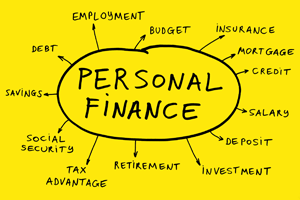- Riverside High School
- Financial Management
Williams, Teorah
Page Navigation
"Sometimes it's not about he money, but rather the process of managing the money. "
- All Categories
- Unassigned
- Select Month
- January
- February
- March
- April
- May
- June
- July
- August
- September
- October
- November
- December
- Select Year
- 2024
- 2025
- 2026
- 2027
Current Assignments
There are no current assignments.
Past Due Assignments
There are no past due assignments.
-
Career & Financial Management

_________________________________________________________________________________________
Why Teaching Financial Education is Important:
Financial education plays an important role in guiding individuals to achieve their financial goals and contributing to the economic well-being of society as a whole.
- Without a certain level of financial knowledge, consumers can have difficulty making wise decisions in today's complicated financial marketplace.
- This lack of financial knowledge underscores the need for educating people on basic financial issues so they are able to make wise consumer decisions and become financially successful in society.
- Financial education is an important life skill for people at all socio-economic levels.
The purpose of this course is to:
- Educate high school students about sound money management skills and the financial planning process.
- Help teens begin to develop positive behaviors that are necessary to attaining financial maturity and achieving a secure future.
In the future, individuals who understand financial planning concepts and investment principles will have a significant advantage over those who do not.
_________________________________________________________________________________________
Units of Study:
Lesson 1: Money Management: Control Your Cash Flow
- Explore how spending and saving and values impact your finances
- Set financial goals that are specific and measurable
- Apply strategies to be mindful about spending decisions
- Create a spending plan to achieve your goals
- Figure out ways to maintain a positive cash flow
Lesson 2: Borrowing: Use Don't Abuse
- Weighing the benefits and risks of borrowing
- Compare the costs and terms of borrowing options
- Start the journey to establish a good credit rating
- Explore the rights and responsibilities of borrowers and lenders
- Protect yourself from Identity fraud
Lesson 3: Earning Power: More Than a Paycheck
- Explore the payoffs of investing in yourself
- Measure the value of employee benefits
- Assess factors that impact personal tax liability and take-home pay
- Start down the path to achieving your lifestyle and financial goals
- Prepare to deal with life and work changes
Lesson 4: Investing: Money Working for You
- Explore how saving and investing can be used to build wealth
- Explore how investing works
- Explore the risks and rewards of various types of investment
- Outline strategies to achieve investing goals
- Outline a long-range investment game plan
Lesson 5: Financial Service: Care for Your Cash
- Explain how services are used to handle business transactions
- Select banking tools and technology to handle personal business transactions
- Protect your personal account information
- Select a financial service provider
- Demonstrate how to manage spending and banking transactions
Lesson 6: Insurance: Protect What You Have
- Justify reasons to be insured
- Investigate how insurance works
- Choose insurance for specific needs and situations
- Compare auto insurance options
- Plan ahead to minimize insurance costs and costs of unexpected events
Your Career: Your Future
- Examine how a career choice and lifestyle affect your financial plan
- Examine the relationship of career choice and earning potential
- Explore how education and training affect career choices and earning potential
- Consider the value and choices of career preparation
- Examine how employment benefits enhance earning potential
- Identify factors that affect earning potential and financial planning
- Compare the advantages of working for yourself versus working for others.
-
Personal Finance Standards
The growing emphasis on financial literacy has highlighted the need for students to learn how to navigate the financial decisions they must make and how to make informed decisions related to managing finances and budgeting, saving and investing, living independently, earning and reporting income, buying goods and services, using credit, banking, and protecting against risk.
The standards reflect this emphasis. Knowing, understanding, and applying these concepts offers the necessary analytical tools for addressing economic issues, both personal and societal. Understanding economic principals and developing sound financial literacy skills provide the basis for responsible citizenship, financial solvency, and career success.

- Personal Decision Making - Achievement Standard: Use a rational decision-making process as it applies to the roles of citizens, workers, and consumers.
- Earning and Reporting Income - Achievement Standard: Identify various forms of income and analyze income factors as a part of the career decision-making process.
- Managing Finances and Budgeting - Achievement Standard: Develop and evaluate a spending/saving plan.
- Saving and Investing - Achievement Standard: Evaluate savings and investment options to meet short-and long-term goals.
- Buying Goods and Services - Achievement Standard - Apply a decision-making model to maximize consumer satisfaction when buying goods and services
- Banking and Financial Institutions - Achievement Standard: Evaluate services provided by financial deposit institutions to transfer funds.
- Using Credit - Achievement Standard: Analyze factors that affect the choice of credit, the cost of credit, and the legal aspects of using credit.
- Protecting Against Risk - Achievement Standard: Analyze choices available to consumers for protection against financial loss of risk.







